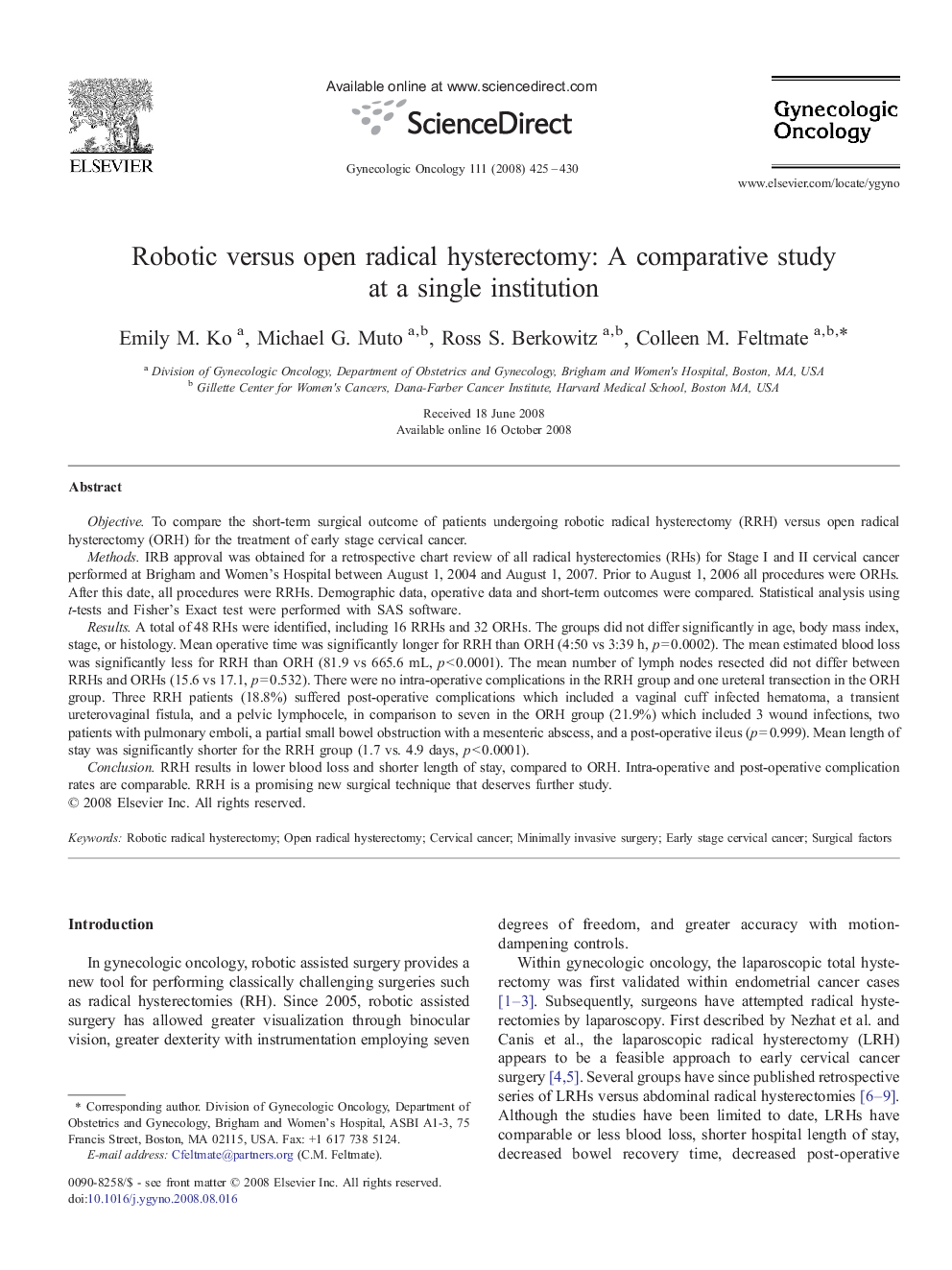| کد مقاله | کد نشریه | سال انتشار | مقاله انگلیسی | نسخه تمام متن |
|---|---|---|---|---|
| 3944328 | 1254194 | 2008 | 6 صفحه PDF | دانلود رایگان |

ObjectiveTo compare the short-term surgical outcome of patients undergoing robotic radical hysterectomy (RRH) versus open radical hysterectomy (ORH) for the treatment of early stage cervical cancer.MethodsIRB approval was obtained for a retrospective chart review of all radical hysterectomies (RHs) for Stage I and II cervical cancer performed at Brigham and Women's Hospital between August 1, 2004 and August 1, 2007. Prior to August 1, 2006 all procedures were ORHs. After this date, all procedures were RRHs. Demographic data, operative data and short-term outcomes were compared. Statistical analysis using t-tests and Fisher's Exact test were performed with SAS software.ResultsA total of 48 RHs were identified, including 16 RRHs and 32 ORHs. The groups did not differ significantly in age, body mass index, stage, or histology. Mean operative time was significantly longer for RRH than ORH (4:50 vs 3:39 h, p = 0.0002). The mean estimated blood loss was significantly less for RRH than ORH (81.9 vs 665.6 mL, p < 0.0001). The mean number of lymph nodes resected did not differ between RRHs and ORHs (15.6 vs 17.1, p = 0.532). There were no intra-operative complications in the RRH group and one ureteral transection in the ORH group. Three RRH patients (18.8%) suffered post-operative complications which included a vaginal cuff infected hematoma, a transient ureterovaginal fistula, and a pelvic lymphocele, in comparison to seven in the ORH group (21.9%) which included 3 wound infections, two patients with pulmonary emboli, a partial small bowel obstruction with a mesenteric abscess, and a post-operative ileus (p = 0.999). Mean length of stay was significantly shorter for the RRH group (1.7 vs. 4.9 days, p < 0.0001).ConclusionRRH results in lower blood loss and shorter length of stay, compared to ORH. Intra-operative and post-operative complication rates are comparable. RRH is a promising new surgical technique that deserves further study.
Journal: Gynecologic Oncology - Volume 111, Issue 3, December 2008, Pages 425–430